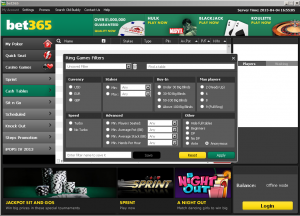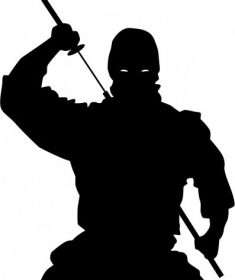iPoker Adds Anonymous Tables
iPoker has quietly launched anonymous tables on some of its sites. Participating skins include big names on iPoker’s segregated top tier such as Titan Poker and Bet 365.
The launch has not yet been publicly marketed so the only notification players have had is the appearance of an “anonymous” radio button in the main lobby filter. A full roll out with all the associated publicity can be expected within weeks.
The anonymous tables are marked in the lobby with a black mask icon. When seated, the main visible change is that player avatars do not show screen names. Players are simply listed as Player 1, Player 2 …Player 9.
In this limited roll out, tables are limited to certain stakes and games:
- Heads-Up tables with blinds from $0.10/$0.20 to $100/$200 in all currencies
- Six Max tables with blinds from $0.10/$0.20 to $100/$200 in all currencies
- Full Ring tables with blinds from $0.10/$0.20 to $1/$2 in USD only
Bodog launched the anonymous table concept in 2011 as part of its recreational player model. This model was the brainchild of Swedish born Vice President (now Bodog Managing Director) Jonas Oldman. Alongside reducing guaranteed tournament overlays and changing the way VIP benefits were allocated, Oldman was the first to introduce tables where recreational players could not be targeted by the sharks.
“We lost more players, but once again the revenues went up. It’s not easy to accept players deciding not to play with your poker product, but it was proving I was right; if we focused on the recreational players, we would increase our revenues and we would have a healthier poker network in the long term.”
Bodog has stuck with the model and extended it to tournaments with its “Anonymous Poker Series,” of live and online events running in Asia throughout 2013 ending with a $100k Grand Final in Manila, in Jan 2014.
iPoker is the latest of a procession of networks to play follow the leader on this issue. Microgaming (now rebranded MPN) already had a limited version of the concept for HU games and soon extended it to ring game tables.
All HU tables at Merge network skins are anonymous, and even PartyPoker has introduced them for some HU games. The HU problem is a particular target for the anonymity concept because so many tables in poker room lobbies get filled up with regs waiting for a fish to sit. If another reg sits, they leave and open another table.
AT HU games, anonymous tables force the regs to play against each other if they want a chance to share in money lost by weaker players.
The arguments against the concept are vociferously raised by many regulars and professionals. Firstly, no screen names means that database driven Heads Up Displays (HUDs) no longer work, or at least only work on the basis of the hands played at the current table.
Multitabling massive volumes of hands is difficult without a HUD so typically anonymous tables drive these players to sites, like PokerStars, which are still prepared to cater to professional players. Since professionals don’t make deposits, just withdrawals, they inject no money into the poker economy and take money from losing players that would otherwise go in rake to the site operator.
Perhaps the most valid objection to anonymous tables is the increased risk of cheating. Without databases and hand histories identifying individual players, it is almost impossible for other players to identify possible collusion or cheating.
Even reputed leader in this field PokerStars does not have a 100% success rate. According to Sven Stiel, their Director of Northern Europe, PokerStars identifies more than 90% of collusion and cheating cases before they are reported by players, and 98% of bots are detected before players notice them.
In the high profile, high stakes, Ultimate Bet cheating scandal, it was the players who uncovered the cheating not the site. With anonymous tables players are dependent on the site’s own security measures and have no means of verifying the effectiveness of what the site is doing to protect their interests.
And that is for many players the key point. Undetected cheating costs players money, but the site continues to get the rake regardless. Players have a real incentive to prevent cheating and to seize the money in cheaters accounts as compensation. The sites, especially the smaller sites see game security as an expense, a business overhead which for all the players know can be cut to ineffectiveness during any period of corporate difficulty.
In discussing the Bodog Anonymous Series, Jonas Oldman says:
“This model has been specifically designed to appeal to the Asian market where the ‘trust-factor’ is the single most important reason for choosing one operator over another. In the Asian market we believe our product – in the same way Live Dealer casinos are viewed above RNG operators – will be the preferred option in poker.”
The problem is that anonymous tables don’t give us the option, we have to trust the operator, because we no longer have the information to check for ourselves.




















COMMENTS